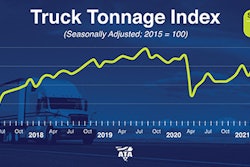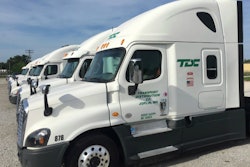Trailer orders improved in September to 28,300 units, according to FTR, driven mostly by a few large fleet requirements for next year.
September orders were up about 109% month-over-month but down 45% year-over-year.
Trailer orders now total 316,000 units over the past twelve months. September total net trailer orders grew mainly as the result of a 268% month-over-month surge in dry van orders for the month, as some 2022 orderbooks were cautiously cracked open, according to Frank Maly, ACT Research director of commercial vehicle transportation analysis and research.
"Dry van and reefer OEMs are trying to walk a very delicate line, setting their pricing in a very challenging inflationary environment while also balancing production commitments with component and material availability and staffing concerns.” he added. “Staffing seems to have become a more challenging issue for the industry. Adds to staff are very difficult, while consistent attendance of existing staff is also reported to be problematic.”
Many OEMs have unfilled orders from 2021, which will roll into the first quarter of 2022 and makes production planning difficult. Don Ake, FTR vice president of commercial vehicles, said he expects orders to surge when OEMs are more confident about future manufacturing conditions.
"The supply chain bottlenecks which hampered production throughout 2021 will, unfortunately, continue into 2022. Trailer OEMs are facing shortages of over two dozen components including steel, aluminum, rubber products, wood flooring, wiring harnesses, and plastic parts, etc.," he said. "The supply chain is now expected to improve only at a modest pace throughout 2022.”
Fleets are desperate for new trailers, Ake said, adding there are reports from the field of trailers breaking down because they are being run for an extended time due to the shortage of new trailers. "The pent-up demand is growing every month, so when the trailerOEMs are finally able to ramp up production, they will be under pressure to produce at elevated rates for an extended time," he said.










